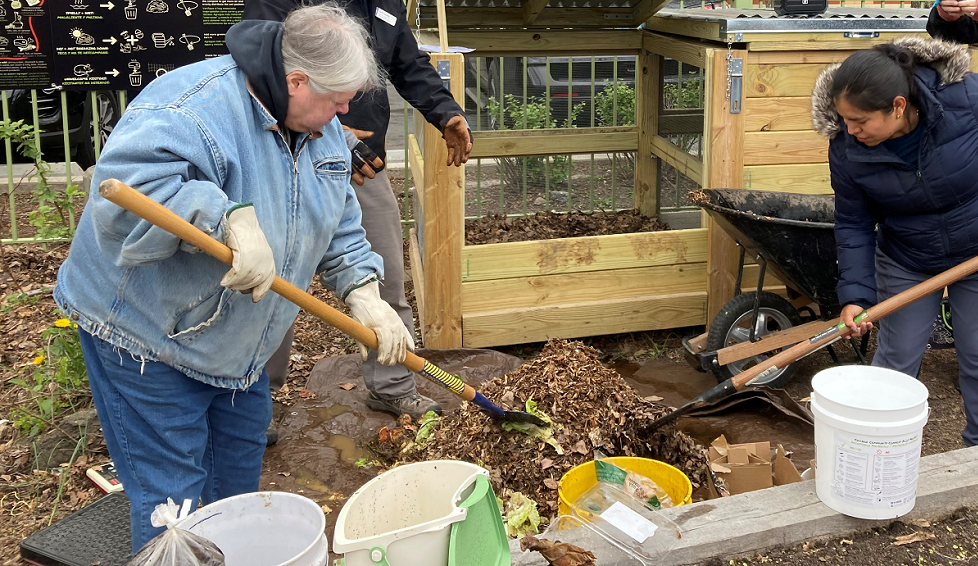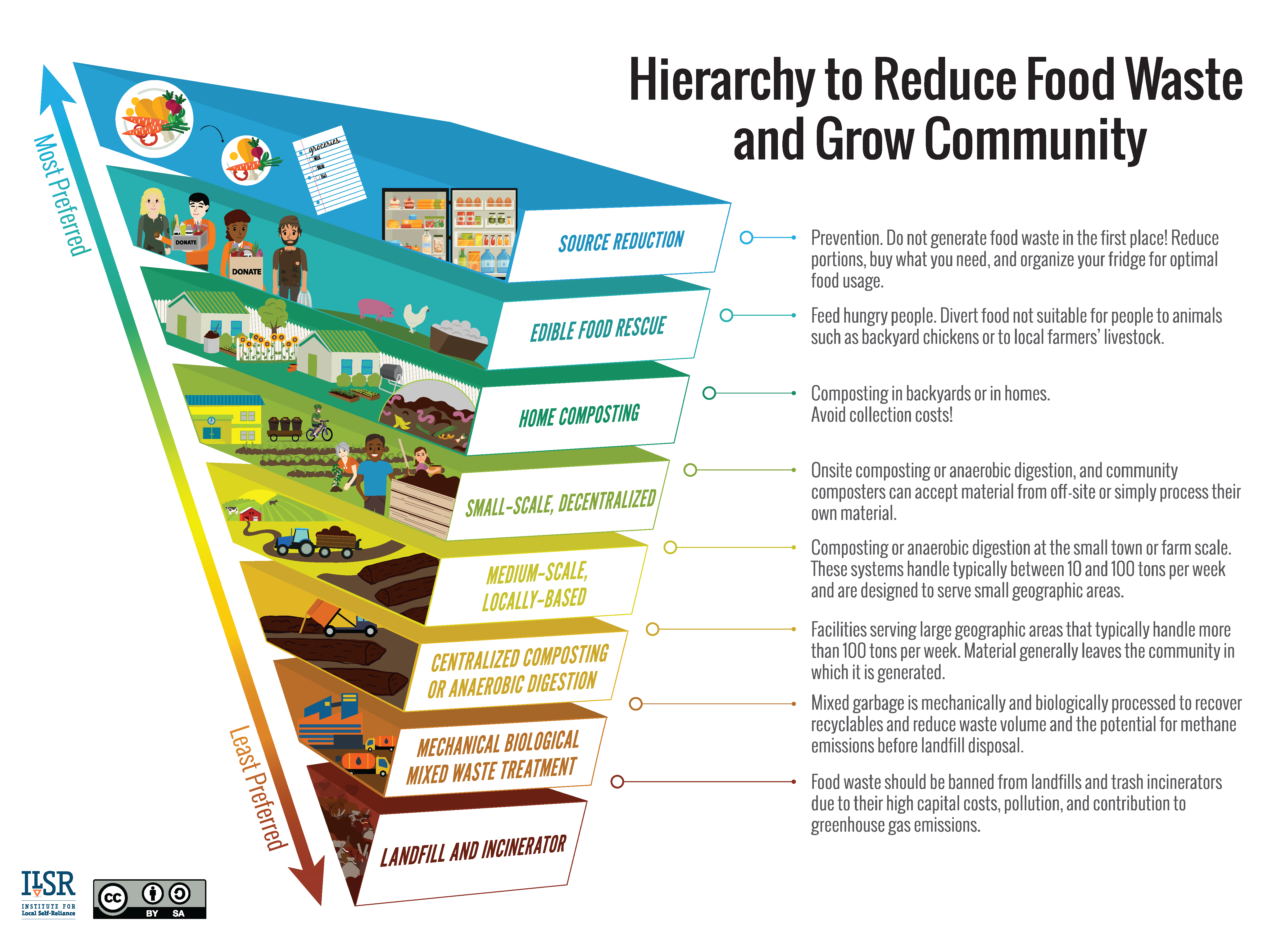Community Composting Pilot Program
Since 2021, the Department of Streets and Sanitation has partnered with NeighborSpace on a Chicago Community Composting Pilot Program at six community gardens. Funded partially through a grant from the Natural Resources Defense Council as part of the Food Matters Initiative and through the Chicago Recovery Plan, the locations are on NeighborSpace-protected community garden sites located across the city.

The goal of the pilot is to demonstrate that garden trimmings and household fruit/vegetable scraps can be diverted from the waste stream by community residents at the local level and returned to the same community to use as compost to nourish the soil at the gardens. As part of the pilot, each garden was provided with equipment and training for composting garden trimmings and household fruit/vegetable scraps on-site at the gardens. Equipment included a three-bin compost system, composting tools, and signage. Volunteer compost leaders from each garden also received training in the form of three workshops focused on community composting.
Composting operations began in the spring and summer of 2023. The University of Illinois Extension-Cook County led workshops and provide ongoing technical support for the compost leaders. The Institute for Local Self-Reliance led an online workshop and provided planning guidance. Researchers from the DePaul University Steans Center for Community-Based Service Learning and Community Service Studies are evaluating the project.
The six community gardens included in the pilot program are:
- Stockyard Gardens, Community Area: New City
- El Paseo Community Garden, Community Area: Lower West Side
- Merchant Park Community Garden, Community Area: Irving Park
- Hermitage Street Community Garden, Community Area: Englewood
- Fulton Street Flower and Vegetable Garden, Community Area: West Garfield Park
- Montrose Metra Community Gardens, Community Area: North Center
Benefits of Community Garden Composting
Composting can happen in many ways and at many levels. The Institute of Local Self-Reliance shows how small-scale community composting, such as Chicago’s Community Composting Pilot Program, fits in among other approaches to composting in terms of reducing food waste while growing community.
The City of Chicago aims for this program to complement its new Food Scrap Drop-Off Program, where DSS crews transport the food scraps for composting to a local commercial composting facility.
Read more about community composting and its benefits from the Institute of Local Self-Reliance.

.png)
Image Source: Institute for Local Self-Reliance (www.ilsr.org), a national nonprofit organization working to strengthen local economies, and redirect waste into local recycling, composting, and reuse industries. It is reprinted here with permission.
